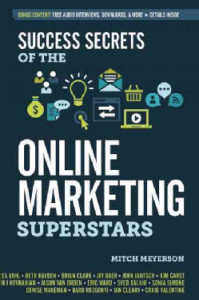A Tale of Two Ad Titles – Part One
 Two advertisements, both appearing in Science News Magazine, illustrate two different approaches to blog titles and blog content writing in general, I realized, resolving to use the pair as examples in my next blog writing training session.
Two advertisements, both appearing in Science News Magazine, illustrate two different approaches to blog titles and blog content writing in general, I realized, resolving to use the pair as examples in my next blog writing training session.
It’s Enough to Make You Blue in the Face
(advertisement for the Stauer Urban Blue® wristwatch)
This ad covers every base you can think of:
Features:
- sturdy stainless steel caseback and crown
- genuine leather
- simple, clean lines
- striking metallic blue face
- cotswold™ mineral crystal
- 60-day money back guarantee
- water-resistant to 3ATM
Benefits:
- high end performance
- style
- on-trend (quote from WatchTime: “Blue watches are one of the growing style trends seen in the watch world in the past few years.”)
Testimonial:
“The quality of their watches is equal to any that can go for ten times the price or more.” Jeff from MicKinney, TX.
A giveaway:
“We’ll even throw in a pair of Flyboy Optics® sunglasses with purchase.”
Takeaways for bloggers:
1. The title? Cutesy use of the color blue and the expression “blue in the face”, but doesn’t have any keyword phrases in it that would work for SEO.
2. An even more important blog writing takeaway from this ad is that it’s a little (no, a lot) too much! You don’t want your blog to be an all-in-one marketing tool that forces a visitor to spend a long time just figuring out the 87 wonderful services your company has to offer and the 92 benefits of your product. No, your business blog should offer just a “peek”, enough to convey to the individual searcher that he/she’s come to the right place, and to invite him/her to move on to your website to learn further details.
3. On the other hand, what you can do with the blog is offer different kinds of information in different blog posts. In a way, each time you post (or have your ghost blogger post), you’re offering some valuable information or advice relating to just one aspect of your business. another day, your blog post can highlight a different benefit or feature.
Don’t overload your posts with content to the point of making your readers “blue in the face!”





Follow us online!